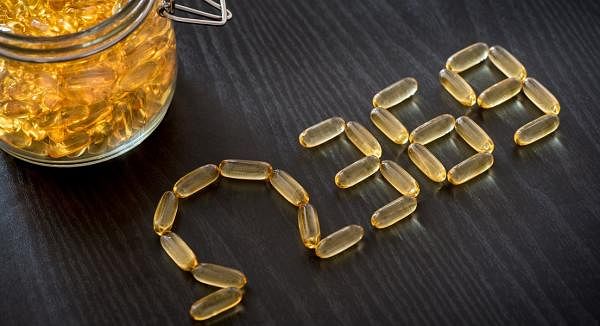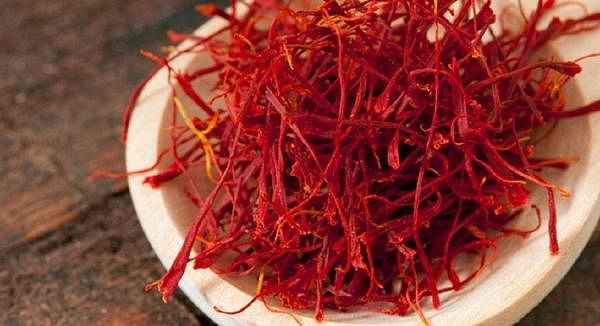A Summary of Key Nutrients for Eye Health
Why you can trust Nutri Advanced Every article on our site is researched thoroughly by our team of highly qualified nutritionists. Find out more about our editorial process.
How often do you consider the impact of your diet on the health of your eyes?
Whilst most people are now aware of the tremendous impact that a great diet can have on many aspects of their health and wellbeing; few people are aware of the dietary changes that can have a significant impact on eye health.
About 2 million people in the UK regard themselves as having eye problems, and around 100 people start to lose their sight every day. And as the population of the Western world ages, it is likely that eye disease will become even more prevalent. Contrary to popular belief however, deterioration of the eyes is not an inevitable consequence of ageing; oxidative stress, smoking, obesity and sub-optimal nutritional status are all modifiable factors that have been implicated in the pathology of eye dysfunction. Here’s a summary of the key nutrients you can choose to include in your diet to protect your eye health both now and in the long term.
Antioxidants have a significant role to play in maintaining the health of the eye; cellular damage as a result of oxidation is believed to contribute to the development of a wide spectrum of eye diseases. The retina of the eye is particularly vulnerable to damage due to oxidation. Key antioxidant vitamins, such as vitamins E and C, which help to neutralize harmful free radicals may help to protect the eye. Lipoic acid is a particularly useful antioxidant for the eyes as it protects against both fat and water-soluble free radicals and also helps to enhance the effectiveness of other antioxidants
Zinc - The retina is known to have a high concentration of zinc; it interacts with taurine in the photoreceptors of the eye. It is also needed for the functioning of an important enzyme, which converts retinol to retinal, the form of vitamin A used in the eye. Copper binds with zinc therefore it is always prudent to supplement copper with zinc.
L-Taurine is the most abundant amino acid in the eyes and may help to prevent or reverse cataracts.
Carotenoids such as zeaxanthin are powerful free radical scavengers and can help to protect the eyes. One study found that adults with the highest intake of lutein had a 57% reduced risk of developing AMD compared to those with the lowest intake1.
Another carotenoid lutein is found in high amounts in spinach, romaine lettuce, peas, egg yolks and corn.
Bilberry – This fruit, similar to blueberries has long been used for the traditional treatment of eye conditions; its active constituents are flavonoid anthocyanosides, which have potent antioxidant activity. Interestingly, World War II British air pilots reported improvements in their night vision following the consumption of bilberries!
References:
1. Seddon JM, Ajani UA, Sperduto et al. Dietary carotenoids, vitamins A, C and E, and advanced age-related macular degeneration JAMA 1994; 272: 1413-20
This website and its content is copyright of Nutri Advanced ©. All rights reserved. See our terms & conditions for more detail.
Nutri Advanced has a thorough research process and for any references included, each source is scrutinised beforehand. We aim to use the highest value source where possible, referencing peer-reviewed journals and official guidelines in the first instance before alternatives. You can learn more about how we ensure our content is accurate at time of publication on our editorial policy.
Most Popular Articles
-
7 Surprising Ways To Support Your Magnesium
If you are displaying signs of a magnesium deficiency, here are 7 ways to boost your magnesium levels that are easy to incorporate into your daily life. -
5 Best Vitamin C Supplements Picked By Our Experts
Learn more about the different types of vitamin C, the different benefits you get from different types, and what you get for spending more on a good supplement. -
Top 5 Vitamins For Energy And Tiredness Picked By Our Experts
The 5 best and most important vitamins for energy & tiredness including B vitamin food sources & best supplement forms for energy. -
Benefits of Myo-Inositol for Polycystic Ovary Syndrome (PCOS)
In this research review article, we take a closer look at a lesser-known natural compound called myo-inositol that has been found to have significant potential to improve many of the prevalent features of PCOS. -
Top 10 Reasons to Give Your Kids Omega-3
Read the top 10 reasons that kids should have plenty of Omega-3- an essential fatty acid- including for depression, brain function, sleep & reading/maths skills.











